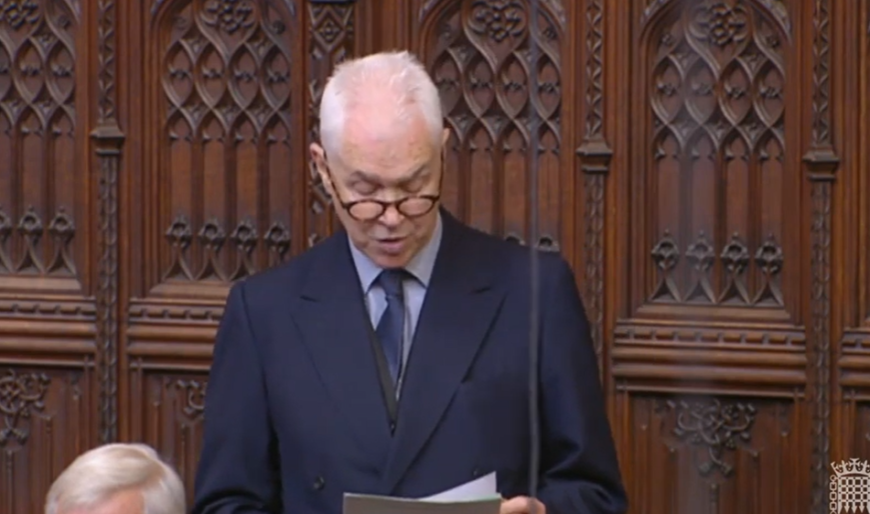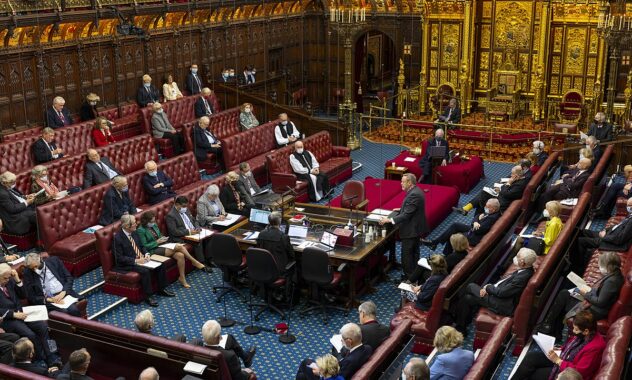Lord Hendy responds to the passage of the Strikes (Minimum Service Levels) Bill
Speech to the House of Lords, 20th July 2023

Via Hansard:
“My Lords, in form, this skeleton legislation with its Henry VIII powers defies every legislative principle, as the Delegated Powers and Regulatory Reform Committee, the Secondary Legislation Scrutiny Committee and the Select Committee on the Constitution have reported. As to content, the less said the better. Although the Government’s impact assessment was held by the Regulatory Policy Committee to be not fit for purpose, it contains the revealing analysis that, far from obviating the disruption that strikes inevitably cause, the Bill
“could mean a general increase in tension between unions and employers. This may result in more adverse impacts in the long term, such as an increased frequency of strikes for each dispute”.
No doubt that is part of the reason why employers, as well as trade unions, have opposed the Bill.
This House tried to redeem the Bill with amendments to protect workers from unfair dismissal and unions from damages and injunctions, as required by international law, but the Government’s majority in the other place rejected them. This House, in its latest modest amendment, sought to mitigate the Bill’s excesses by requiring consultation before regulations were made, but even this was rejected by the other place on Monday.
The fact is that the Bill abridges the right to strike, a right established by many international treaties to which the UK adheres. A letter written by the general secretary of the European Trade Union Confederation to the Secretary of State the day before yesterday sums it up. She said:
“It is clear that the Bill introduces provisions which weaken or reduce existing law in relation to the protection of the fundamental right to strike and which do not respect or implement ILO Convention 87”.
The Joint Committee on Human Rights said the same thing. The letter points out the specific respects in which the Bill fails to meet ILO conditions for permissible MSL legislation. Among its list of non-compliances, the letter points to the absence in the Bill of: any requirement for trade union and employer dialogue in the setting of MSLs; any obligation on the employer to negotiate an agreement with the trade union about service levels; and any independent adjudication mechanism in the event of a failure to agree.
Your Lordships’ amendment would have gone a long way to rectify these non-compliances without such remedial action. As ETUC points out, the UK will not only be in breach of ILO Convention 87 and paragraph 4 of Article 6 of the European Social Charter, but it will also violate Articles 387 and 399 of the trade and co-operation agreement. However, the Government have a problem with consultation with the social partners. Just a week ago, the High Court held that the purpose of the statutory obligation to consult before making regulations under the Employment Agencies Act was that:
“Parliament can then proceed on the basis that the case for the measure has been tested with interested parties in the sector and that their views and interests have been taken into consideration in fashioning the draft regulations which are laid before it”.
The Government’s failure to consult was, the court held,
“so unfair as to be unlawful and, indeed, irrational”.
Less than a month ago, the relevant ILO committee told
“the Government to provide information to and facilitate the dialogue between and with the social partners with a view to … improve consultation of the social partners on legislation of relevance to them”.
Of course I accept that the undertaking by the noble Lord to introduce a code of practice imports a duty to consult, but such consultation is apparently limited solely to the issue of reasonable steps. It does not require the social dialogue that compliance with international law does. In truth, as was said by Mick Whitley MP in the other place,
“no number of amendments could ever salvage this Bill”.—[Official Report, Commons, 17/7/23; col. 721.]
That is why the Labour Party is committed to repealing it.
Watch Lord Hendy’s speech here:







